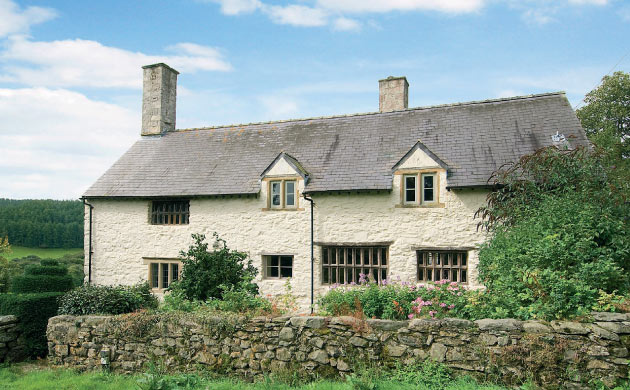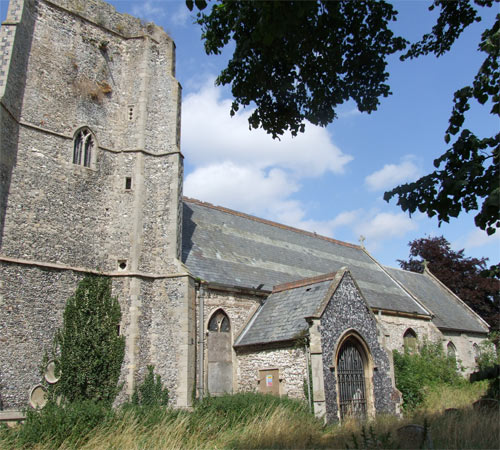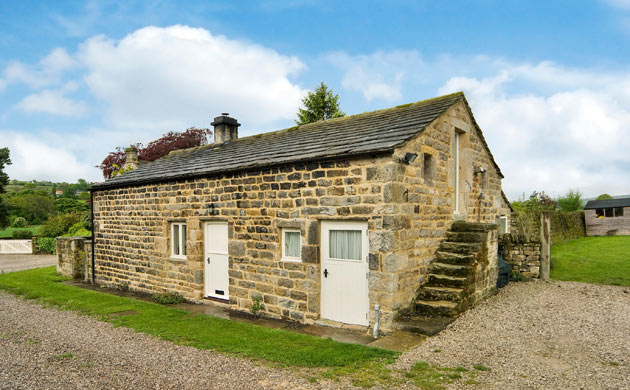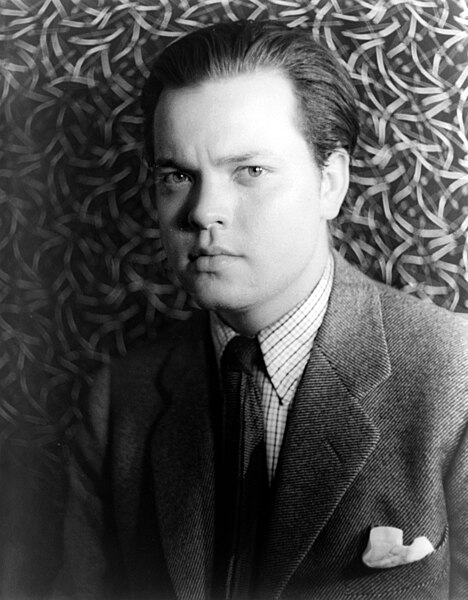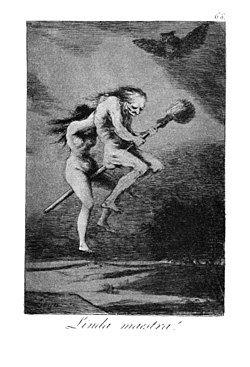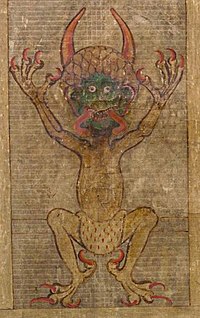
Saturday, October 31, 2009
From Bert Christensen's Weird & Different Recipes

Calaveras: Mexican Prints for the Day of the Dead
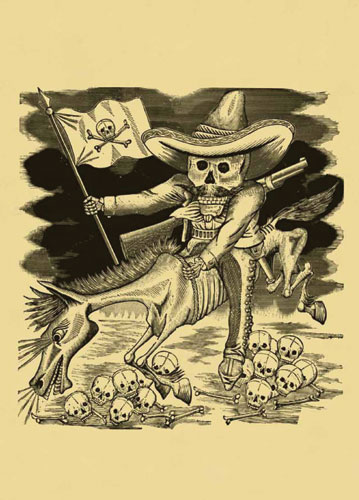
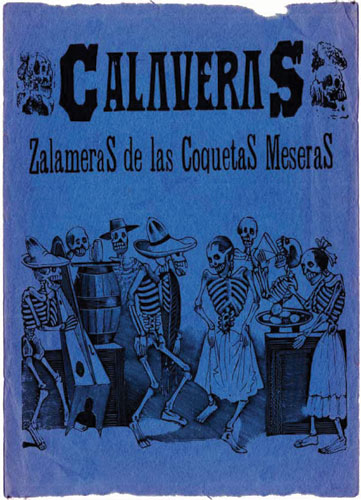
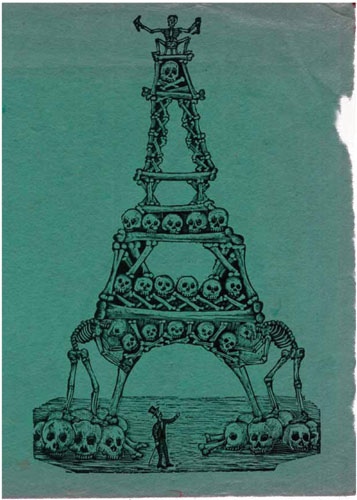
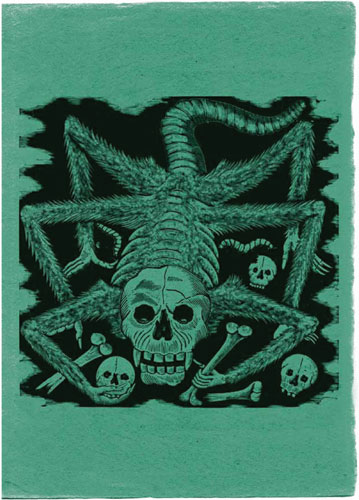
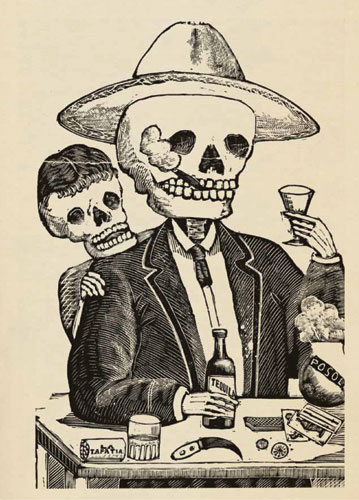
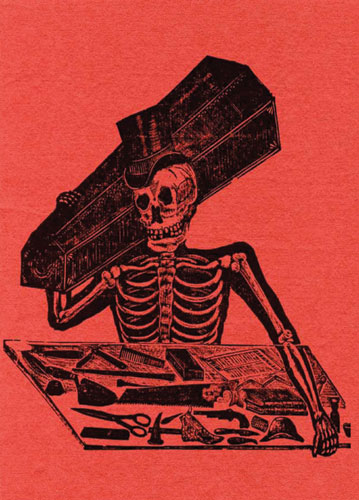 From The Guardian Newspaper, UK
From The Guardian Newspaper, UK
Houses For Sale
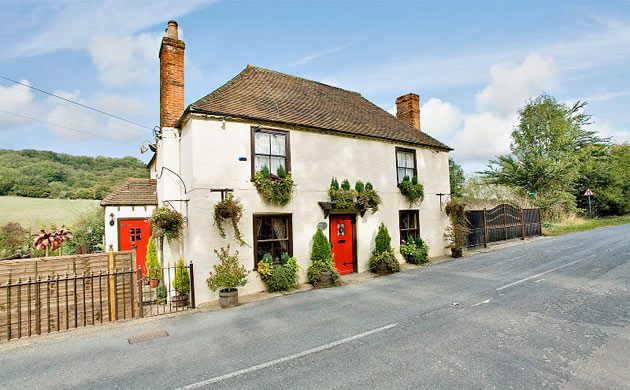
Wingmore, Kent: From the outside the four-bed Palm Tree Inn looks like an idyllic family home. But watch out for the little girl ghost who plays with dolls and the heard but not seen “heavy-footed gentleman” which the owner claims share the property. The £695,000 ($1,148,145.40) house dates back to the 1700s when it was a pub and frequented by a notorious smugglers’ gang (the bar remains in the family room). You’re surrounded by stunning views, although the peace has allegedly been disturbed by the ghosts of King John’s 50,000 soldiers. And wrap up warm – not even the open log fires will warm you from the inexplicable chill that many guests say they feel. The owner says it’s a “wonderful feeling” to live in a home with such history, so don’t be too afraid. Geering & Colyer, 01227 457 253 Photograph: Geering & Colyer
Brithdir Mawr in Cilcain, Wales has changed little since it was built in the 16th century, and it remains one of the area's oldest houses. On the market for £795,000, the four-bedder creaks with history and boasts big oak doors, wood panelled walls and quarry tiled floors; stand in the middle of the drawing room and you can look down into the original central hearth, preserved beneath a glass screen. Set in 12 acres it stands at the end of a no-through road. According to one author with an interest in the supernatural it is rumoured to be haunted by a lady with long hair in a flowing grey gown. One taxi driver was said to be so scared by the sight of her that he vowed never to drive down the lane again after dark. Strutt & Parker, 01244 354 888 Photograph: Strutt & Parker
St Mary the Less in Thetford, Norfolk is believed to Thetford's oldest church, and with planning permission could be converted into a four-bed home for an Addams family. Inside the wooden pews are covered with dust and cobwebs, while outside headstones are hidden among the overgrowing grass. On the market for £224,995, the stained glass windows could do with a polish, and who knows what is lurking in the vaults. There are plenty of original features including stone carvings and the rickety pews that could be preserved should this church be converted. Abbotts Countrywide, 01284 725 566 Photograph: Abbotts Countrywide
In the country: North Yorkshire. This £295,000 former blacksmith's cottage in Summerbridge near Harrogate is full of humility on the outside and grandeur within. It's grade II-listed, with an adjoining paddock. Inside is a farmhouse kitchen, a sitting room, a dining room and two bedrooms. Neighbours live in the outbuildings. Carter Jonas, 01423 523423 Photograph: Carter Jonas
Dorset. You can keep all but the essential parts of the 21st century at bay beneath this thatch in the village of Bradford Abbas near Sherborne. Winter can be sat out before the hearth in the large beamed sitting room, and summer in the cottage garden. The Shaker-style kitchen is large enough to eat in and there is a miniature dining room opening on to the patio. Returning family can be stowed in the second beamed, eaves bedroom. Yours for £249,950. Palmer Snell, 01935 812218 Photograph: Palmer Snell
London W5. This 17th-century alms house* swallowed a next-door electricity substation to create a vast entertaining room. A normal sitting room is in the main house, along with four bedrooms, a country style kitchen/breakfast room, a modern bathroom and two shower rooms. Outside there is a lovely garden with box hedges, but beyond that is a main road. Cost: £1.25m ($2,065,ooo). Sinton Andrews, 020 8566 1990 Photograph: Sinton Andrews
* Note: There is no strict delineation between Almshouses and other forms of sheltered housing , although Almshouses will tend to be characterised by their charitable status and by the aim of supporting the continued independence of their residents. Although different from an almshouse, a poorhouse or workhouse was a government-run facility in the past for the support and housing of dependent or needy persons, typically run by a local government entity such as a county or munincipality. In early Victorian times, poverty was seen as a dishonourable state caused by a lack of the moral virtue of industriousness. As was depicted by Charles Dickens, a poorhouse or workhouse could resemble a reformatory and house children, either with families or alone, or a penal labour regime to give the poor work at manual labour and subject them to physical punishment. As the 19th century progressed, conditions became better.

Friday, October 30, 2009
Martian Invasion in Progress!
The War of the Worlds was an episode of the American radio drama anthology series Mercury Theatre on the Air. It was performed as a Halloween episode of the series on October 30, 1938 and aired over the Columbia Broadcasting System radio network. Directed and narrated by Orson Welles, the episode was an adaptation of H. G. Wells' novel The War of the Worlds.
The first two thirds of the 60-minute broadcast was presented as a series of simulated news bulletins, which suggested to many listeners that an actual Martian invasion was in progress. Compounding the issue was the fact that the Mercury Theatre on the Air was a 'sustaining show' (it ran without commercial breaks), thus adding to the dramatic effect. Although there were sensationalist accounts in the press about a supposed panic in response to the broadcast, the precise extent of listener response has been debated. In the days following the adaptation, however, there was widespread outrage. The program's news-bulletin format was decried as cruelly deceptive by some newspapers and public figures, leading to an outcry against the perpetrators of the broadcast, but the episode launched Orson Welles to fame.
The program, broadcast from the 20th floor at 485 Madison Avenue in New York City, starts with an introduction from the novel, describing the intentions of the aliens and noting that the adaptation was set in 1939, a year ahead of the actual broadcast date. The program continues as a weather report, then as an ordinary dance band remote featuring "Ramon Raquello and His Orchestra" (actually the CBS orchestra under the direction of Bernard Herrmann) that is interrupted by news flashes about strange explosions on Mars. Welles makes his first appearance as (the fictional) famous astronomer and Princeton professor Richard Pierson, who refutes speculation about life on Mars.
The news grows more frequent and increasingly ominous as a cylindrical meteorite lands in Grover's Mill, New Jersey. A crowd gathers at the site and events are related by reporter "Carl Phillips" (portrayed by Frank Readick). The meteorite unscrews, revealing itself as a rocket machine, and onlookers catch a glimpse of a tentacled, pulsating, barely mobile Martian before it incinerates the crowd with "Heat-Rays." Phillips' shouts about incoming flames are cut off in mid-sentence. (Later surveys indicate that many listeners heard only this portion of the show before contacting neighbors or family to inquire about the broadcast. Many contacted others in turn, leading to rumors and confusion.)
Regular programming breaks down as the studio struggles to keep up with casualty updates, firefighting developments and the like. A shaken Pierson speculates about Martian technology. The New Jersey state militia declares martial law and attacks the cylinder; a message from their field headquarters goes on about the overwhelming force of properly equipped infantry and the helplessness of the Martians in Earth's gravity until a tripod alien fighting machine rears up from the pit.
The studio returns to establish the Martians as an invading army with the obliteration of the militia force. Emergency response bulletins give way to damage reports and evacuation instructions while millions of refugees clog the roads. Three Martian tripods from the cylinder destroy power stations and uproot bridges and railroads, reinforced by three others from a second cylinder as gas explosions continue. An unnamed Secretary of the Interior advises the nation. (The "secretary" was originally intended to be a portrayal of Franklin D. Roosevelt, then President, but CBS insisted this detail, among others, be changed. The "secretary" did, however, sound like Roosevelt as the result of directions to actor Kenny Delmar by Welles.)

A live connection is established to a field artillery battery. Its gun crew reports damaging one machine and a release of black smoke/poison gas before fading in to the sound of coughing. The lead plane of a wing of bombers broadcasts its approach and remains on the air as their engines are burned by the Heat Ray and the plane dives on the invaders. Radio operators go active and fall silent, most right after reporting the approach of the black smoke. The planes destroyed one machine, but cylinders are falling all across the country.
This section ends famously: a news reporter (played by Ray Collins), broadcasting from atop the CBS building, describes the Martian invasion of New York City — "five great machines" wading across the Hudson River, poison smoke drifting over the city, people running and diving into the East River] "like rats", others "falling like flies" — until he, too, succumbs to the poison gas. Finally, a despairing ham radio operator is heard calling, "2X2L calling CQ. Isn't there anyone on the air? Isn't there anyone on the air? Isn't there.... anyone?"
After an intermission for "station identification", in which announcer Dan Seymour mentions the show's fictionality, the last third is a monologue and dialogue, with Welles returning as Professor Pierson, describing the aftermath of the attacks. The story ends, as does the novel, with the Martians falling victim to earthly germs and bacteria.
After the play, Welles informally breaks character to remind listeners that the broadcast was a Halloween concoction (the equivalent, as he puts it, "of dressing up in a sheet and saying, 'Boo!'"). Popular mythology holds this "disclaimer" was hastily added to the broadcast at the insistence of CBS executives as they became aware of panic inspired by the program; in fact, it had appeared in Koch's working script for the play, as detailed in his 1968 book The Panic Broadcast.
From WikipediA, The Free Encyclopedia http://en.wikipedia.org/wiki/The_War_of_the_Worlds_(radio)

Thursday, October 29, 2009
The Devil's Wager - by William Makepeace Thackeray
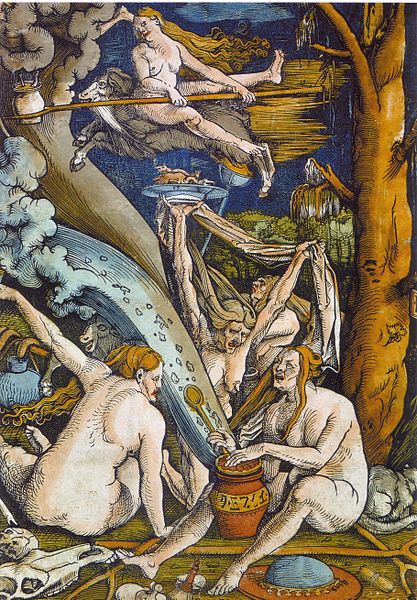 Hans Baldung Grien - Hexen (Witches; woodcut, 1508)
Hans Baldung Grien - Hexen (Witches; woodcut, 1508)
It was the hour of the night when there be none stirring save churchyard ghosts--when all doors are closed except the gates of graves, and all eyes shut but the eyes of wicked men.
When there is no sound on the earth except the ticking of the grasshopper, or the croaking of obscene frogs in the poole.
And no light except that of the blinking starres, and the wicked and devilish wills-o'-the-wisp, as they gambol among the marshes, and lead good men astraye.
When there is nothing moving in heaven except the owle, as he flappeth along lazily; or the magician, as he rides on his infernal broomsticke, whistling through the aire like the arrowes of a Yorkshire archere.
It was at this hour (namely, at twelve o'clock of the night,) that two beings went winging through the black clouds, and holding converse with each other.
Francisco Goya's Los Caprichos: ¡Linda maestra! ("The Spoils: Beautiful Teacher!") – witches heading to a Sabbath
Now the first was Mercurius, the messenger, not of gods (as the heathens feigned), but of daemons; and the second, with whom he held company, was the soul of Sir Roger de Rollo, the brave knight. Sir Roger was Count of Chauchigny, in Champagne; Seigneur of Santerre, Villacerf and aultre lieux. But the great die as well as the humble; and nothing remained of brave Rodger now, but his coffin and his deathless soul.
And Mercurius, in order to keep fast the soul, his companion, had bound him round the neck with his tail; which, when the soul was stubborn, he would draw so tight as to strangle him well nigh, sticking into him the barbed point thereof; whereat the poor soul, Sir Rollo, would groan and roar lustily.
Now they two had come together from the gates of purgatorie, being bound to those regions of fire and flame where poor sinners fry and roast in saecula saeculorum.
"It is hard," said the poor Sir Rollo, as they went gliding through the clouds, "that I should thus be condemned for ever, and all for want of a single ave."
"How, Sir Soul?" said the daemon. "You were on earth so wicked, that not one, or a million of aves, could suffice to keep from hell-flame a creature like thee; but cheer up and be merry; thou wilt be but a subject of our lord the Devil, as am I; and, perhaps, thou wilt be advanced to posts of honor, as am I also:" and to show his authoritie, he lashed with his tail the ribbes of the wretched Rollo.
"Nevertheless, sinner as I am, one more ave would have saved me; for my sister, who was Abbess of St. Mary of Chauchigny, did so prevail, by her prayer and good works, for my lost and wretched soul, that every day I felt the pains of purgatory decrease; the pitchforks which, on my first entry, had never ceased to vex and torment my poor carcass, were now not applied above once a week; the roasting had ceased, the boiling had discontinued; only a certain warmth was kept up, to remind me of my situation."
"A gentle stewe," said the daemon.
Catacomb inscriptions include
prayers for the dead.
"Yea, truly, I was but in a stew, and all from the effects of the prayers of my blessed sister. But yesterday, he who watched me in purgatory told me, that yet another prayer from my sister, and my bonds should be unloosed, and I, who am now a devil, should have been a blessed angel."
"And the other ave?" said the daemon.
"She died, sir--my sister died--death choked her in the middle of the prayer." And hereat the wretched spirit began to weepe and whine piteously; his salt tears falling over his beard, and scalding the tail of Mercurius the devil.
"It is, in truth, a hard case," said the daemon; "but I know of no remedy save patience, and for that you will have an excellent opportunity in your lodgings below."
"But I have relations," said the Earl; "my kinsman Randal, who has inherited my lands, will he not say a prayer for his uncle?"
"Thou didst hate and oppress him when living."
"It is true; but an ave is not much; his sister, my niece, Matilda--"
"You shut her in a convent, and hanged her lover."
"Had I not reason? besides, has she not others?"
"A dozen, without doubt."
"And my brother, the prior?"
"A liege subject of my lord the Devil: he never opens his mouth, except to utter an oath, or to swallow a cup of wine."
"And yet, if but one of these would but say an ave for me, I should be saved."
"Aves with them are rarae aves," replied Mercurius, wagging his tail right waggishly; "and, what is more, I will lay thee any wager that not one of these will say a prayer to save thee."
"I would wager willingly," responded he of Chauchigny; "but what has a poor soul like me to stake?"
"Every evening, after the day's roasting, my lord Satan giveth a cup of cold water to his servants; I will bet thee thy water for a year, that none of the three will pray for thee."
"Done!" said Rollo.
"Done!" said the daemon; "and here, if I mistake not, is thy castle of Chauchigny."
Indeed, it was true. The soul, on looking down, perceived the tall towers, the courts, the stables, and the fair gardens of the castle. Although it was past midnight, there was a blaze of light in the banqueting-hall, and a lamp burning in the open window of the Lady Matilda.
"With whom shall we begin?" said the daemon: "with the baron or the lady?"
"With the lady, if you will."
"Be it so; her window is open, let us enter."
So they descended, and entered silently into Matilda's chamber.
The young lady's eyes were fixed so intently on a little clock, that it was no wonder that she did not perceive the entrance of her two visitors. Her fair cheek rested on her white arm, and her white arm on the cushion of a great chair in which she sat, pleasantly supported by sweet thoughts and swan's down; a lute was at her side, and a book of prayers lay under the table (for piety is always modest). Like the amorous Alexander, she sighed and looked (at the clock)--and sighed for ten minutes or more, when she softly breathed the word "Edward!"
At this the soul of the Baron was wroth. "The jade is at her old pranks," said he to the devil; and then addressing Matilda: "I pray thee, sweet niece, turn thy thoughts for a moment from that villanous page, Edward, and give them to thine affectionate uncle."
When she heard the voice, and saw the awful apparition of her uncle (for a year's sojourn in purgatory had not increased the comeliness of his appearance), she started, screamed, and of course fainted.
But the devil Mercurius soon restored her to herself. "What's o'clock?" said she, as soon as she had recovered from her fit: "is he come?"
"Not thy lover, Maude, but thine uncle--that is, his soul. For the love of heaven, listen to me: I have been frying in purgatory for a year past, and should have been in heaven but for the want of a single ave."
"I will say it for thee to-morrow, uncle."
"To-night, or never."
"Well, to-night be it:" and she requested the devil Mercurius to give her the prayer-book from under the table; but he had no sooner touched the holy book than he dropped it with a shriek and a yell. "It was hotter," he said, "than his master Sir Lucifer's own particular pitchfork." And the lady was forced to begin her ave without the aid of her missal.
At the commencement of her devotions the daemon retired, and carried with him the anxious soul of poor Sir Roger de Rollo.
The lady knelt down--she sighed deeply; she looked again at the clock, and began--
"Ave Maria."
When a lute was heard under the window, and a sweet voice singing--
"Hark!" said Matilda.
"Now the toils of day are over, And the sun hath sunk to rest, Seeking, like a fiery lover, The bosom of the blushing west--
"The faithful night keeps watch and ward, Raising the moon, her silver shield, And summoning the stars to guard The slumbers of my fair Mathilde!"
"For mercy's sake!" said Sir Rollo, "the ave first, and next the song."
So Matilda again dutifully betook her to her devotions, and began--
"Ave Maria gratiâ plena!" but the music began again, and the prayer ceased of course.
Saint Roch Interceding with the Virgin for the Plague-Stricken.
Jacques-Louis David
"The faithful night! Now all things lie Hid by her mantle dark and dim, In pious hope I hither hie, And humbly chant mine ev'ning hymn.
"Thou art my prayer, my saint, my shrine! (For never holy pilgrim kneel'd, Or wept at feet more pure than thine), My virgin love, my sweet Mathilde!"
"Virgin love!" said the Baron. "Upon my soul, this is too bad!" and he thought of the lady's lover whom he had caused to be hanged.
But She only thought of him who stood singing at her window.
"Niece Matilda!" cried Sir Roger, agonizedly, "wilt thou listen to the lies of an impudent page, whilst thine uncle is waiting but a dozen words to make him happy?"
At this Matilda grew angry: "Edward is neither impudent nor a liar, Sir Uncle, and I will listen to the end of the song."
"Come away," said Mercurius; "he hath yet got wield, field, sealed, congealed, and a dozen other rhymes beside; and after the song will come the supper."
So the poor soul was obliged to go; while the lady listened, and the page sung away till morning.
"My virtues have been my ruin," said poor Sir Rollo, as he and Mercurius slunk silently out of the window. "Had I hanged that knave Edward, as I did the page his predecessor, my niece would have sung mine ave, and I should have been by this time an angel in heaven."
"He is reserved for wiser purposes," responded the devil: "he will assassinate your successor, the lady Mathilde's brother; and, in consequence, will be hanged. In the love of the lady he will be succeeded by a gardener, who will be replaced by a monk, who will give way to an ostler, who will be deposed by a Jew pedler, who shall, finally, yield to a noble earl, the future husband of the fair Mathilde. So that, you see, instead of having one poor soul a-frying, we may now look forward to a goodly harvest for our lord the Devil."
Dead sparrow beneath a bus stop shelter
The soul of the Baron began to think that his companion knew too much for one who would make fair bets; but there was no help for it; he would not, and he could not, cry off: and he prayed inwardly that the brother might be found more pious than the sister.
But there seemed little chance of this. As they crossed the court, lackeys, with smoking dishes and, full jugs, passed and repassed continually, although it was long past midnight. On entering the hall, they found Sir Randal at the head of a vast table, surrounded by a fiercer and more motley collection of individuals than had congregated there even in the time of Sir Rollo. The lord of the castle had signified that "it was his royal pleasure to be drunk," and the gentlemen of his train had obsequiously followed their master. Mercurius was delighted with the scene, and relaxed his usually rigid countenance into a bland and benevolent smile, which became him wonderfully.
The entrance of Sir Roger, who had been dead about a year, and a person with hoofs, horns, and a tail, rather disturbed the hilarity of the company. Sir Randal dropped his cup of wine; and Father Peter, the confessor, incontinently paused in the midst of a profane song, with which he was amusing the society.
"Holy Mother!" cried he, "it is Sir Roger."
"Alive!" screamed Sir Randal.
"No, my lord," Mercurius said; "Sir Roger is dead, but cometh on a matter of business; and I have the honor to act as his counsellor and attendant."
"Nephew," said Sir Roger, "the daemon saith justly; I am come on a trifling affair, in which thy service is essential."
"I will do anything, uncle, in my power."
"Thou canst give me life, if thou wilt?" But Sir Randal looked very blank at this proposition. "I mean life spiritual, Randal," said Sir Roger; and thereupon he explained to him the nature of the wager.
Whilst he was telling his story, his companion Mercurius was playing all sorts of antics in the hall; and, by his wit and fun, became so popular with this godless crew, that they lost all the fear which his first appearance had given them. The friar was wonderfully taken with him, and used his utmost eloquence and endeavors to convert the devil; the knights stopped drinking to listen to the argument; the men-at-arms forbore brawling; and the wicked little pages crowded round the two strange disputants, to hear their edifying discourse. The ghostly man, however, had little chance in the controversy, and certainly little learning to carry it on. Sir Randal interrupted him. "Father Peter," said he, "our kinsman is condemned for ever, for want of a single ave: wilt thou say it for him?" "Willingly, my lord," said the monk, "with my book;" and accordingly he produced his missal to read, without which aid it appeared that the holy father could not manage the desired prayer. But the crafty Mercurius had, by his devilish art, inserted a song in the place of the ave, so that Father Peter, instead of chanting an hymn, sang the following irreverent ditty--
"Some love the matin-chimes, which toll The hour of prayer to sinner: But better far's the mid-day bell, Which speaks the hour of dinner; For when I see a smoking fish, Or capon drown'd in gravy, Or noble haunch on silver dish, Full glad I sing mine ave.
"My pulpit is an ale-house bench, Whereon I sit so jolly; A smiling rosy country wench My saint and patron holy. I kiss her cheek so red and sleek, I press her ringlets wavy; And in her willing ear I speak A most religious ave.
"And if I'm blind, yet heaven is kind, And holy saints forgiving; For sure he leads a right good life Who thus admires good living. Above, they say, our flesh is air, Our blood celestial ichor: Oh, grant! mid all the changes there, They may not change our liquor!"
“The Garden of Earthly Delights,” by Hieronymus Bosch
And with this pious wish the holy confessor tumbled under the table in an agony of devout drunkenness; whilst the knights, the men-at- arms, and the wicked little pages, rang out the last verse with a most melodious and emphatic glee. "I am sorry, fair uncle," hiccupped Sir Randal, "that, in the matter of the ave, we could not oblige thee in a more orthodox manner; but the holy father has failed, and there is not another man in the hall who hath an idea of a prayer."
"It is my own fault," said Sir Rollo; "for I hanged the last confessor." And he wished his nephew a surly good-night, as he prepared to quit the room.
"Au revoir, gentlemen," said the devil Mercurius; and once more fixed his tail round the neck of his disappointed companion.
The spirit of poor Rollo was sadly cast down; the devil, on the contrary, was in high good humor. He wagged his tail with the most satisfied air in the world, and cut a hundred jokes at the expense of his poor associate. On they sped, cleaving swiftly through the cold night winds, frightening the birds that were roosting in the woods, and the owls that were watching in the towers.
In the twinkling of an eye, as it is known, devils can fly hundreds of miles: so that almost the same beat of the clock which left these two in Champagne, found them hovering over Paris. They dropped into the court of the Lazarist Convent, and winded their way, through passage and cloister, until they reached the door of the prior's cell.
Now the prior, Rollo's brother, was a wicked and malignant sorcerer; his time was spent in conjuring devils and doing wicked deeds, instead of fasting, scourging, and singing holy psalms: this Mercurius knew; and he, therefore, was fully at ease as to the final result of his wager with poor Sir Roger.
"You seem to be well acquainted with the road," said the knight.
"I have reason," answered Mercurius, "having, for a long period, had the acquaintance of his reverence, your brother; but you have little chance with him."
"And why?" said Sir Rollo.
"He is under a bond to my master, never to say a prayer, or else his soul and his body are forfeited at once."
"Why, thou false and traitorous devil!" said the enraged knight; "and thou knewest this when we made our wager?"
"Undoubtedly: do you suppose I would have done so had there been any chance of losing?"
And with this they arrived at Father Ignatius's door.
"Thy cursed presence threw a spell on my niece, and stopped the tongue of my nephew's chaplain; I do believe that had I seen either of them alone, my wager had been won."
"Certainly; therefore, I took good care to go with thee: however, thou mayest see the prior alone, if thou wilt; and lo! his door is open. I will stand without for five minutes, when it will be time to commence our journey."
It was the poor Baron's last chance: and he entered his brother's room more for the five minutes' respite than from any hope of success.
Father Ignatius, the prior, was absorbed in magic calculations: he stood in the middle of a circle of skulls, with no garment except his long white beard, which reached to his knees; he was waving a silver rod, and muttering imprecations in some horrible tongue.
But Sir Rollo came forward and interrupted his incantation. "I am," said he, "the shade of thy brother Roger de Rollo; and have come, from pure brotherly love, to warn thee of thy fate."
"Whence camest thou?"
"From the abode of the blessed in Paradise," replied Sir Roger, who was inspired with a sudden thought; "it was but five minutes ago that the Patron Saint of thy church told me of thy danger, and of thy wicked compact with the fiend. 'Go,' said he, 'to thy miserable brother, and tell him there is but one way by which he may escape from paying the awful forfeit of his bond.'"
"And how may that be?" said the prior; "the false fiend hath deceived me; I have given him my soul, but have received no worldly benefit in return. Brother! dear brother! how may I escape?"
"I will tell thee. As soon as I heard the voice of blessed St. Mary Lazarus" (the worthy Earl had, at a pinch, coined the name of a saint), "I left the clouds, where, with other angels, I was seated, and sped hither to save thee. 'Thy brother,' said the Saint, 'hath but one day more to live, when he will become for all eternity the subject of Satan; if he would escape, he must boldly break his bond, by saying an ave.'"
"It is the express condition of the agreement," said the unhappy monk, "I must say no prayer, or that instant I become Satan's, body and soul."
"It is the express condition of the Saint," answered Roger, fiercely; "pray, brother, pray, or thou art lost for ever."
So the foolish monk knelt down, and devoutly sung out an ave. "Amen!" said Sir Roger, devoutly.
"Amen!" said Mercurius, as, suddenly, coming behind, he seized Ignatius by his long beard, and flew up with him to the top of the church-steeple.
The monk roared, and screamed, and swore against his brother; but it was of no avail: Sir Roger smiled kindly on him, and said, "Do not fret, brother; it must have come to this in a year or two."
And he flew alongside of Mercurius to the steeple-top: But This Time The Devil Had Not His Tail Round His Neck. "I will let thee off thy bet," said he to the daemon; for he could afford, now, to be generous.
"I believe, my lord," said the daemon, politely, "that our ways separate here." Sir Roger sailed gayly upwards: while Mercurius having bound the miserable monk faster than ever, he sunk downwards to earth, and perhaps lower. Ignatius was heard roaring and screaming as the devil dashed him against the iron spikes and buttresses of the church.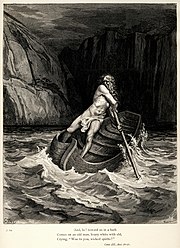 Gustave Dore's engravings illustrated the Divine Comedy (1861–1868);
here Charon comes to ferry souls across the river Acheron to Hell.
Gustave Dore's engravings illustrated the Divine Comedy (1861–1868);
here Charon comes to ferry souls across the river Acheron to Hell.
 Gustave Doré's illustration to Dante's Inferno. Plate X: Canto III: Charon herds the sinners onto his boat.
"Charon the demon, with eyes of glede, / Beckoning to them, collects them all together,
/ Beats with his oar whoever lags behind.'"
Gustave Doré's illustration to Dante's Inferno. Plate X: Canto III: Charon herds the sinners onto his boat.
"Charon the demon, with eyes of glede, / Beckoning to them, collects them all together,
/ Beats with his oar whoever lags behind.'"
Monday, October 26, 2009
More All Hallows Madness
 Uncle Phil
Uncle Phil
Kerensky, The Fighting Flea - Ernest Hemingway
 (Kansas City Star, December 16, 1917, copyright now expired)
(Kansas City Star, December 16, 1917, copyright now expired) In size, Leo is about right for spanking. But that never will happen to Leo. Although he is inches short of five feet, there is a bulkiness about his shoulders that gains respect even from those Cossacks of the business world, the messenger boys. In fact, it was a messenger, coming in blusteringly, who first made it known that Leo possessed a reputation. Almost politely the cocky young fellow handed a yellow envelope to the office bantam. "Why it's Kid Williams," he said, "Are you going to fight at the club Saturday night, Kid?" "I should have known it," the boss said, "Kerensky has all the characteristics of a prize fighter. After a short round of work doesn't he retire to a corner and sit down?" Then some of them remembered Kid Williams in preliminary bouts... One of those boys who scrap three rounds before the big fighters enter the ring. That's Kerensky. You may have thrown some loose change into the ring at the final gong. How you laughed to see the two bantams push each other about and scramble fiercely each to pick up the most. Sometimes they couldn't wait to get their gloves off. All the fight fans roared at them trying to pick up thin dimes in their padded fists. "That's all hippodrome stuff," Kerensky says. "The men like to see us quarrel over the money, but win or lose, we split it fifty-fifty. My half of the pickup runs form $1.50 to $2.50." The worst thing about the fight game, take it from Kerensky, is the smoke. He has even considered retiring from the ring because it is so upsetting to take a deep breath of tobacco fumes. "But of course I haven't quit," he explains. "Right now if I knew some of the clubs downtown had a smoker on and they offered me $2, of course I'd get in and fight." How would Kerensky advise a young man to open a pugilistic career? Well, he just picked up his skill. For several years he sold papers, and you know how one thing leads to another. There is a newsboy rule that if one boy installs himself on a corner no other can sell there. A full grown man used to cry the headlines on a certain Grand Avenue crossing. Poachers bothered him. "It wouldn't look right for a big fellow to hit a little kid," says Kerensky, "so he let me sell there, too, and sicked me on all the strange boys. I always ran them away. He liked me and called me Kid Williams, after the bantamweight champion." Kerensky's last street fight was to a big gate. A newsboy of larger growth was the victim. They clinched and fell to the sidewalk. A crowd gathered, but the crossing patrolman turned his back till the battle was over. Then he came over and said: "Leo, I guess you'll have to cut this out." After that, when Leo wanted to fight, somebody had to hire a hall. He began going into the gymnasiums to sell papers. There he watched the big men train for their Convention Hall bouts. Sometimes the proprietors would let him come in and work out beside Thorpe or Chavez for nothing. It costs the ordinary citizen a dime, Leo says, to get in and work at the pulleys and weights at times like these.
His opportunity came to go on in a newsboy bout at a smoker in Cutler's gymnasium. The kid glows yet at the mention of that bout. "It was the best fight of my career," he says. "I went in mad, and gave the fans their money's worth. But I was awful green, and was almost knocked out in the last round. Now I know how to study 'em, and I don't have to work as hard." After hard days in old Russia, the life is full of joy for Leo, and who can say that he is not making the most of his opportunities? When he talks of the past it is of a progrom. That Christmas season the workmen in a sugar refinery near Kiev made a cross of ice and set it up on the frozen river. It fell over and they blamed the Jews. Then the workmen rioted, breaking into stores and smashing windows. Leo and his family hid on the roof for three days, and his sister fell ill of pneumonia. One studies to change the subject and asks: "Leo, do they ever match you with a bigger boy?" "Oh no," he says, "the crowd wouldn't stand for that. But sometimes I catch one on the street."

Bad Day at Suicide Rock
Normandy, France - Jacques LeFevrier left nothing to chance when he decided to commit suicide. He stood at the top of a tall cliff and tied a noose around his neck. He tied the other end of the rope to a large rock. He drank some poison and set fire to his clothes. He even tried to shoot himself at the last moment. He jumped and fired the pistol. The bullet missed him completely, but cut through the hanging rope instead. Freed of the threat of hanging, Mr. LeFevrier plunged into the sea. The sudden plunge into the freezing waters extinguished the flames and apparently made him vomit the poison as well. He was dragged out of the water by witnesses on the beach below the cliff and was taken to a hospital, where he died of hypothermia.
Artistic but imaginary portrayal of Lucretia against a black background, about to stab herself with a poignard, by Rembrandt. The cruciform posture is standard in Christian depictions of the event.
Halloween Horror - A Bad Day at the Zoo
Paderborn, Germany - Zookeeper Friedrich Riesfeldt fed his constipated elephant 22 doses of animal laxative and more than a bushel of berries, figs and prunes. The plugged-up pachyderm finally let fly. Standing next to his elephant, Mr. Riesfeldt suffocated under 200 pounds of elephant manure. Investigators say Riesfeldt, 46, was attempting to give the ailing elephant an enema when the beast unloaded on him.
“The sheer force of the elephant’s unexpected defecation knocked Mr. Riesfeldt to the ground, where he struck his head on a rock and lay unconscious as the elephant continued to evacuate his bowels on top of him,” said flabbergasted police detective Erik Dern. With no one there to help him, he lay under all that dung for at least an hour before a watchman came along.
from Bizarre Death Stories
http://www.ssqq.com/archive/vinlin10.htm
The Leshy is a male woodland spirit
 The Leshy is a male woodland spirit in Slavic mythology believed to protect wild animals and the forests. They usually appear as tall men, but have the ability to change size and shapeshift into any form, animal or plant. Leshies have beards made of living grass and vines, and are often depicted with a tail, hooves, and horns. The Leshy has pale white skin and dark green eyes. They are the lords of the forest and hold close bonds with gray wolves, bears, and all animal life. When a leshy is in human form it looks like a common peasant, although its eyes glow. The creatures can shrink themselves to the height of a blade of grass or grow to the size of the tallest trees. It is commonly understood that leshies will lead peasants astray, make people sick, and even tickle them to death. The creatures are terribly mischievous and have horrible cries. However, Leshies can also imitate human voices and often times lure lost wanderers to their caves. They aren’t always evil, but enjoy misguiding humans and kidnapping young women.
from Bryan J. at Listverse
http://listverse.com/
The Leshy is a male woodland spirit in Slavic mythology believed to protect wild animals and the forests. They usually appear as tall men, but have the ability to change size and shapeshift into any form, animal or plant. Leshies have beards made of living grass and vines, and are often depicted with a tail, hooves, and horns. The Leshy has pale white skin and dark green eyes. They are the lords of the forest and hold close bonds with gray wolves, bears, and all animal life. When a leshy is in human form it looks like a common peasant, although its eyes glow. The creatures can shrink themselves to the height of a blade of grass or grow to the size of the tallest trees. It is commonly understood that leshies will lead peasants astray, make people sick, and even tickle them to death. The creatures are terribly mischievous and have horrible cries. However, Leshies can also imitate human voices and often times lure lost wanderers to their caves. They aren’t always evil, but enjoy misguiding humans and kidnapping young women.
from Bryan J. at Listverse
http://listverse.com/
So – the inevitable has happened – zombies have attacked the world. You need to know how to survive and this is the list you need
 Zombie 1
If it’s a zombie infestation, the cops, firemen, and ambulance men will all be rather busy, or dead. When the first zombies are seen, the police will take them to hospitals. Do not lock yourself in your apartment and wait for the police to save you. Do not cooperate with the authorities. They know nothing about zombies, as they believe that zombies are a myth.
2. Get armed
Zombie 1
If it’s a zombie infestation, the cops, firemen, and ambulance men will all be rather busy, or dead. When the first zombies are seen, the police will take them to hospitals. Do not lock yourself in your apartment and wait for the police to save you. Do not cooperate with the authorities. They know nothing about zombies, as they believe that zombies are a myth.
2. Get armed
 Zombie 2
You do not want to face zombies and be unarmed, even if they are not so smart or quick or powerful, they will be too dangerous to fight bare handed. Firearms are good, but you should also have some side weapons you can use if you run out of bullets, or if they get too close. Anything’s good: knives, swords, axes or even poleaxes if you know how to use one properly. Blunt weapons are also good, but you must wear protection goggles and a mask, or something to protect your face from the splash.
3. Get armored
Zombie 2
You do not want to face zombies and be unarmed, even if they are not so smart or quick or powerful, they will be too dangerous to fight bare handed. Firearms are good, but you should also have some side weapons you can use if you run out of bullets, or if they get too close. Anything’s good: knives, swords, axes or even poleaxes if you know how to use one properly. Blunt weapons are also good, but you must wear protection goggles and a mask, or something to protect your face from the splash.
3. Get armored
 Zombie 3
You must try to protect your body as much as you can, especially the neck, arms and legs. These are the most exposed parts to bite. You can find lots of body armor from army surplus shops, or even martial arts and hunting shops. Jeans also offer good protection from bites.
4. Leave town
Zombie 3
You must try to protect your body as much as you can, especially the neck, arms and legs. These are the most exposed parts to bite. You can find lots of body armor from army surplus shops, or even martial arts and hunting shops. Jeans also offer good protection from bites.
4. Leave town
 Zombie 4
If the zombie infestation caught you in a big town, you must leave immediately. It’s one thing to face 10 zombies, but another thing to face 10000 zombies. Best thing is to go to the country. Farms are quite easy to defend, and the open spaces won’t let you get caught by surprise.
5. Gather supplies
Zombie 4
If the zombie infestation caught you in a big town, you must leave immediately. It’s one thing to face 10 zombies, but another thing to face 10000 zombies. Best thing is to go to the country. Farms are quite easy to defend, and the open spaces won’t let you get caught by surprise.
5. Gather supplies
 Zombie 5
Gather as many supplies as you can. Everything from bottled water to gas – you will need it. And it won’t be hard to do it…if everyone’s dead it won’t be stealing! Best thing is to get a truck and start looting the largest stores in the area. Don’t go into big towns, and don’t start looting until you are 100% sure there won’t be a zombie attack, let alone a big one! You don’t want the authorities to stop the attack, nor do you want to end up in jail for looting.
6. Barricade
Zombie 5
Gather as many supplies as you can. Everything from bottled water to gas – you will need it. And it won’t be hard to do it…if everyone’s dead it won’t be stealing! Best thing is to get a truck and start looting the largest stores in the area. Don’t go into big towns, and don’t start looting until you are 100% sure there won’t be a zombie attack, let alone a big one! You don’t want the authorities to stop the attack, nor do you want to end up in jail for looting.
6. Barricade
 Zombie 6
Some barbed wire and a whole bunch of gas filled bottles can do wonders when defending your resort from a zombie attack. Also, alarms are a very good idea. You can make them yourself (some cans and pots on a wire) or get a real one, motion sensors and everything (see number 5 for looting tips – Gas and Generator required).
7. Search for survivors
Zombie 6
Some barbed wire and a whole bunch of gas filled bottles can do wonders when defending your resort from a zombie attack. Also, alarms are a very good idea. You can make them yourself (some cans and pots on a wire) or get a real one, motion sensors and everything (see number 5 for looting tips – Gas and Generator required).
7. Search for survivors
 Zombie 7
After you have enough supplies, and your home and the surroundings are safe, you should start searching for survivors. Even if you are the only one of your group still alive, you’ll end up going mad if you remain alone. Start with the small towns around you. It will be quite easy if you have a zombie proof car. Just go to the town limits and honk. Ifzombies are there, they will head in your direction and you can just leave; alternatively you will recognize the survivors and can form a group. Safety in numbers!
From Listverse - Contributor: Yaurt
Zombie 7
After you have enough supplies, and your home and the surroundings are safe, you should start searching for survivors. Even if you are the only one of your group still alive, you’ll end up going mad if you remain alone. Start with the small towns around you. It will be quite easy if you have a zombie proof car. Just go to the town limits and honk. Ifzombies are there, they will head in your direction and you can just leave; alternatively you will recognize the survivors and can form a group. Safety in numbers!
From Listverse - Contributor: Yaurt
Sunday, October 25, 2009
Very Spooky! All Hallow's Eve - The Devil's Footprints Seen Today?
A traditional Irish halloween Jack-o'-lantern
from the early 20th century on display in the
Museum of Country Life, Ireland.
from Wikipedia
The Devil's Footprints is a name given to a peculiar phenomenon that occurred in Devon, England, in 1855, and since:
after a light snowfall, trails of hoof-like marks appeared in the snow, following primarily straight lines for over 100 miles. The footprints were so called because some superstitious people believed that the footprints were the tracks of Satan, as they were allegedly made by a cloven hoof. Many theories have been put forward to explain the incident, and some aspects of its veracity have also been called into question.
Incident
On the night of 8-9 February 1855 and one or two later nights, after a light snowfall, a series of hoof-like marks appeared in the snow. These footprints, measuring 1.5 to 2.5 inches wide and eight inches apart, continued throughout the countryside for a total of over 100 miles, and, although veering at various points, for the greater part of their course followed straight lines. Houses, rivers, haystacks and other obstacles were travelled straight over, and footprints appeared on the tops of snow-covered roofs and high walls which lay in the footprints' path, as well as leading up to and exiting various drain pipes of as small as a four inch diameter.
The area in which the prints appeared extended from Exmouth, up to Topsham, and across the river Exe to Dawlish and Teignmouth. R.H. Busk, in an article published in Notes and Queries decades later, stated that footprints also appeared further afield, as far south as Totnes and Torquay, and that there were other reports of the prints further afield in Weymouth (Dorset) and even Lincolnshire. In each case, the prints would go on for miles and miles before abruptly stopping.
There were also attendant rumours about sightings of a "devil-like figure" in the Devon area during the scare. Many townspeople armed themselves and attempted to track down the beast responsible, without success.
Theories
Many explanations have been put forward for the incident. Some investigators are sceptical that the tracks really extended for over a hundred miles, arguing that no-one would have been able to follow their entire course in a single day. Another reason for scepticism, as Joe Nickell points out, is that the eye-witness descriptions of the footprints varied from person to person.
Balloon
Author Geoffrey Household suggested that "an experimental balloon" released by mistake from Devonport Dockyard had left the mysterious tracks by trailing two shackles on the end of its mooring ropes. His source was a local man, Major Carter, whose grandfather had worked at Devonport at the time. Carter claimed that the incident had been hushed up because the balloon also wrecked a number of conservatories, greenhouses, and windows before finally descending to earth in Honiton.
While this could explain the shape of the prints, skeptics have disagreed about whether the balloon could have travelled such a random zigzag course without its trailing ropes and shackles becoming caught in a tree or similar obstruction.
Hopping mice
Mike Dish, in an article published in Fortean Studies, suggests that at least some of the prints, including some of those found on rooftops, could have been made by hopping rodents such as wood mice. The print left behind after a mouse leaps resembles that of a cloven animal, due to the motions of its limbs when it jumps. Dash states that the theory that the Devon prints were made by rodents was originally proposed as long ago as March 1855, in The Illustrated London News.
Hysteria
It is also often suggested that the footprints were merely a case of mass hysteria, caused by the sighting of various different animal tracks and lumping them together as one.
Kangaroo
In a letter to the Illustrated London News in 1855, Rev. G.M. Musgrave wrote: "In the course of a few days a report was circulated that a couple of kangaroos escaped from a private menagerie (Mr. Fische's, I believe) at Sidmouth." It seems, though, that nobody ascertained whether the kangaroos had escaped, nor how they could have crossed the Exe estuary.
Similar incidents
Recently, on the night of March 12, 2009, more strange marks, corresponding to those left in 1855 were found again in Devon. Comparative analysis shows similar markings. Reports of similar anomalous, obstacle-unheeded footprints exist from other parts of the world, although none is of such a scale as that of the case of the Devil's Footprints.
Among the high mountains of that elevated district where Glenorchy, Glenlyon and Glenochay are contiguous, there have been met with several times, during this and also the former winter, upon the snow, the tracks of an animal seemingly unknown at present in Scotland. The print, in every respect, is an exact resemblance to that of a foal of considerable size, with this small difference, perhaps, that the sole seems a little longer, or not so round; but as no one has had the good fortune as yet to have obtained a glimpse of this creature, nothing more can be said of its shape or dimensions; only it has been remarked, from the depth to which the feet sank in the snow, that it must be a beast of considerable size. It has been observed also that its walk is not like that of the generality of quadrupeds, but that it is more like the bounding or leaping of a horse when scared or pursued. It is not in one locality that its tracks have been met with, but through a range of at least twelve miles.
In the Illustrated London News, March 17, 1855, a correspondent from Heidelberg wrote, "upon the authority of a Polish Doctor in Medicine," that on the Piaskowa-góra (Sand Hill) a small elevation on the border of Galacia, but in Russian Poland, such marks are to be seen in the snow every year, and sometimes in the sand of this hill, and "are attributed by the inhabitants to supernatural influences."
There have been many incidents of strange footprints with cloven hoofs appearing without an obvious cause. Most occur during or after a fierce electrical storm. Some of these are linked to the legend of Kui found in the Shanhaijing, a mythical monster with one leg like cloven hoof that look kind of like cow, except with one foot. Fierce electrical storms heralded its presence.
This phenomenon is also linked to the legends of Sciapods. Referencing: The Rough Guide to the Paranormal.

